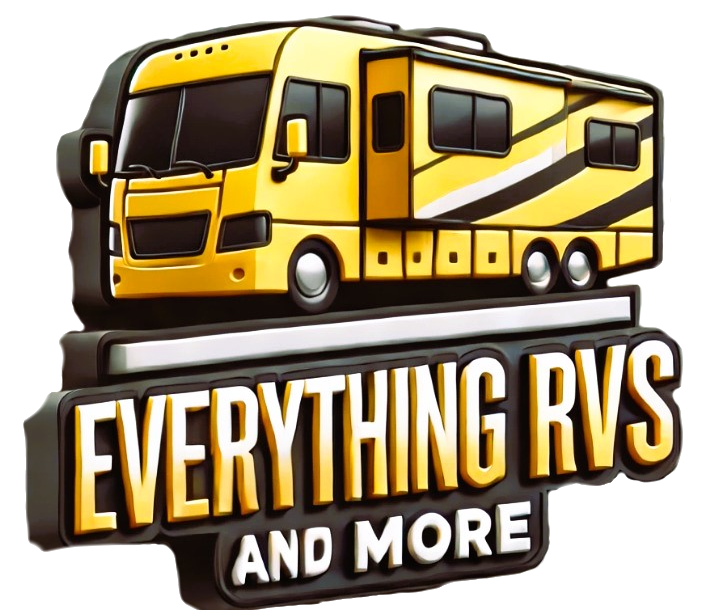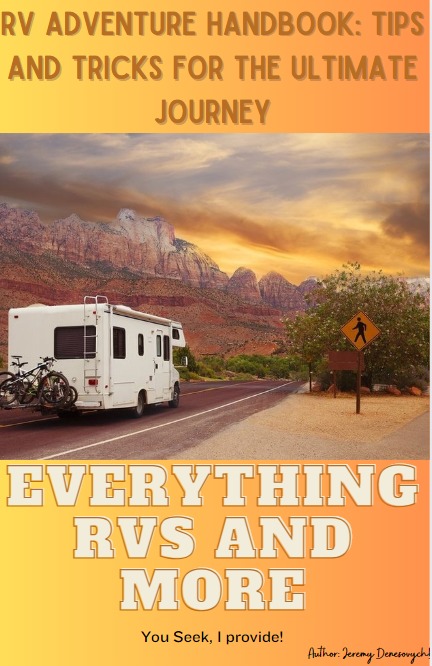Towing an RV isn’t just about hooking up and hitting the road. It’s about safety, weight distribution, and knowing your vehicle’s limits. Overloading your rig can lead to poor handling, excessive brake wear, and even dangerous sway on the highway. That’s why understanding your towing capacity is essential.
This RV Towing Calculator will help you determine if your tow vehicle and RV setup are within safe weight limits. Enter your RV’s weight, your vehicle’s towing capacity, and hitch details, and find out whether you’re good to go—or if you need to rethink your setup.
Why Towing Capacity Matters
When towing an RV, weight ratings determine whether your trip will be smooth or a potential disaster. The main weight terms every RVer should know include:
- Unloaded Vehicle Weight (UVW): The empty weight of your RV from the factory.
- Gross Vehicle Weight Rating (GVWR): The maximum your RV can weigh when fully loaded.
- Tow Vehicle Capacity: The maximum weight your truck/SUV can tow.
- Hitch/Tongue Weight: The downward force exerted by your trailer onto the hitch (typically 10-15% of your trailer’s weight).
If your RV’s total weight exceeds your vehicle’s towing capacity, you risk:
✅ Transmission & Engine Strain – Overloading can lead to overheating & costly damage.
✅ Poor Braking Performance – More weight = longer stopping distances.
✅ Trailer Sway & Instability – If weight isn’t properly balanced, your RV may start fish-tailing at high speeds.
With this calculator, you can avoid these risks and ensure safe towing.
How to Use This RV Towing Calculator
This tool is simple and gives you an instant result on whether your setup is safe or overloaded.
Step 1: Enter Your RV’s Weight
- RV Dry Weight (UVW): Find this on the RV’s sticker or owner’s manual.
- Gross Vehicle Weight Rating (GVWR): The max fully loaded weight allowed.
Step 2: Enter Your Tow Vehicle’s Specs
- Towing Capacity: Look up your vehicle’s max tow rating (found in the owner’s manual or online).
- Hitch/Tongue Weight: Enter the percentage of the RV’s weight that rests on the hitch (typically 10-15%).
Step 3: Get Your Results
- If your RV’s weight is within safe limits, you’re good to go!
- If it exceeds your towing capacity, you’ll need to adjust your setup—lighter loads, weight distribution hitches, or a different tow vehicle.
Now, enter your numbers below and check your towing safety!
RV Towing Calculator
Enter your details below to see if your setup is safe!
Recommended Towing Gear for a Safer RV Experience
Even if your RV is within your vehicle’s towing capacity, the right equipment can make a huge difference in handling, safety, and stress-free travel. Here are some must-have towing accessories every RVer should consider:
1️⃣ Weight Distribution Hitch with Sway Control
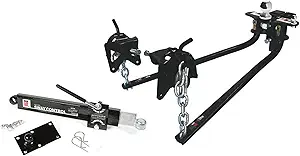
If your trailer pulls to the side when big rigs pass or on windy highways, you need a weight distribution hitch with built-in sway control. This system:
✅ Balances weight between your tow vehicle and trailer to prevent sagging.
✅ Reduces sway caused by wind or passing trucks.
✅ Improves braking performance and overall stability.
👉 Check out the best weight distribution hitches here:
Find Weight Distribution Hitches on Amazon
2️⃣ Heavy-Duty Towing Mirrors
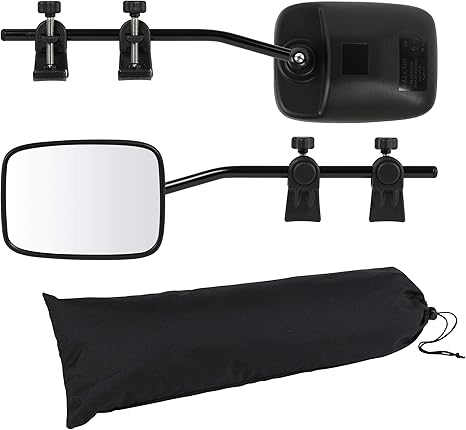
Factory side mirrors often don’t cut it when pulling a large RV. Extended towing mirrors give you:
✅ Better visibility of blind spots behind your trailer.
✅ Safer lane changes on the highway.
✅ Adjustable angles for improved night driving.
👉 Browse the best towing mirrors here:
Find Towing Mirrors on Amazon
3️⃣ Electronic Brake Controller
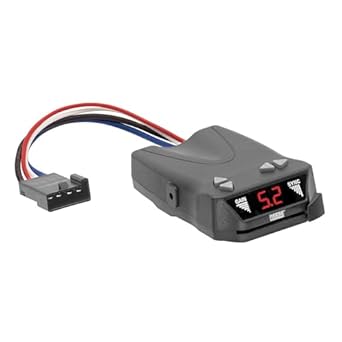
If your RV is over 3,000 lbs GVWR, most states and provinces require an electric brake controller. This device:
✅ Syncs your RV’s brakes with your tow vehicle for smoother stops.
✅ Prevents trailer sway by evenly distributing braking power.
✅ Improves safety when driving through mountains or highways.
👉 Check out the best brake controllers here:
Find RV Brake Controllers on Amazon
4️⃣ Trailer Tire Pressure Monitoring System (TPMS)
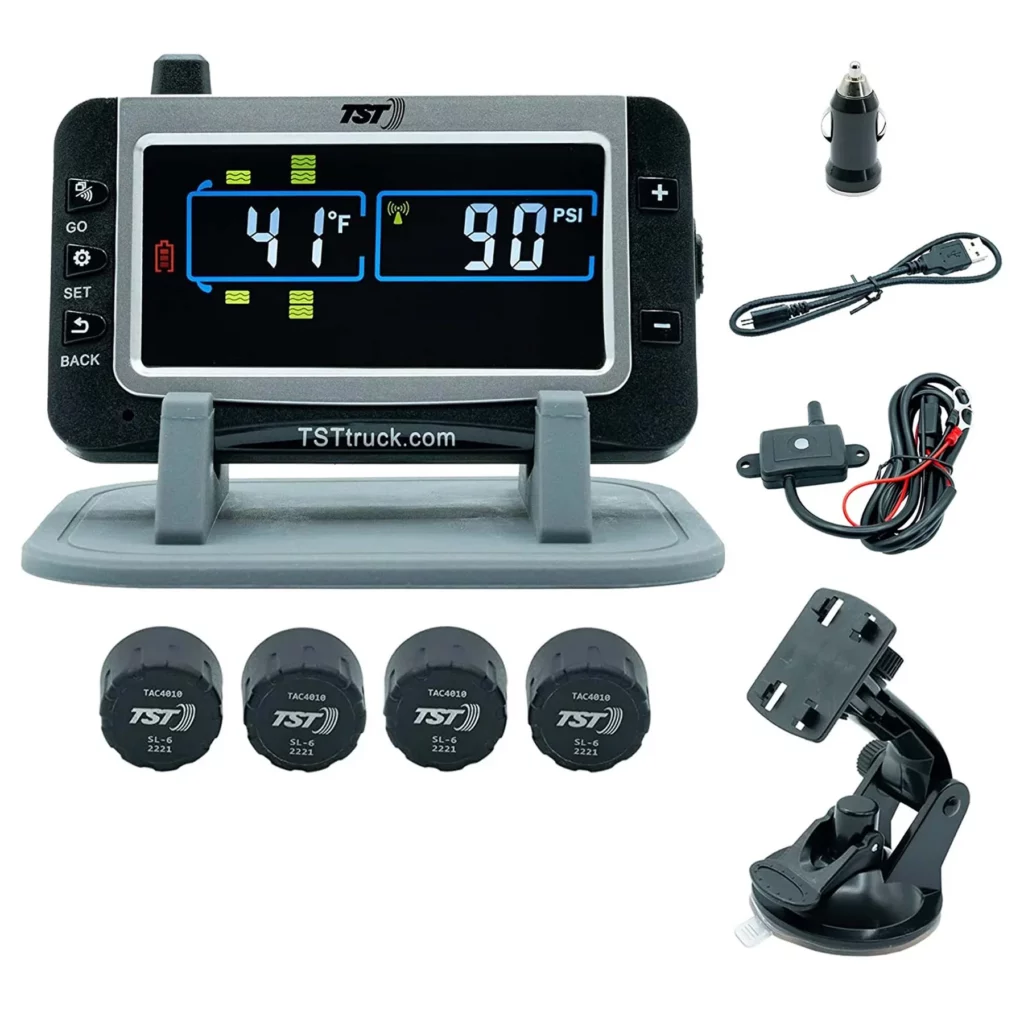
Trailer blowouts happen fast and unexpectedly. A TPMS system alerts you if a tire is losing pressure, preventing dangerous tire blowouts on the highway.
✅ Monitors real-time pressure and temperature of all trailer tires.
✅ Alerts you if a tire is leaking or overheating.
✅ Extends the lifespan of your RV tires.
👉 Check out the best TPMS for RVs here:
Find Trailer TPMS Systems on Techno RV
Final Thoughts: Safe Towing = A Better RVing Experience
Towing an RV safely isn’t just about staying within weight limits—it’s about understanding your setup and investing in the right gear. Here’s what to remember:
✅ Always check your towing capacity before hitting the road.
✅ Balance your RV’s weight properly to prevent sway and tire wear.
✅ Upgrade your towing gear for a smoother, safer ride.
✅ Drive cautiously and brake early—towing changes your stopping distance.
This RV Towing Calculator gives you the numbers you need, but towing smart is more than just math—it’s about safety, control, and having confidence behind the wheel.
If you’re gearing up for your next RV adventure, don’t skimp on safety. The right towing accessories can save your rig, your truck, and even your life.
